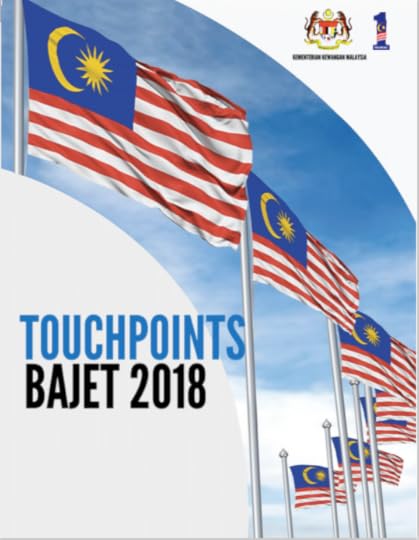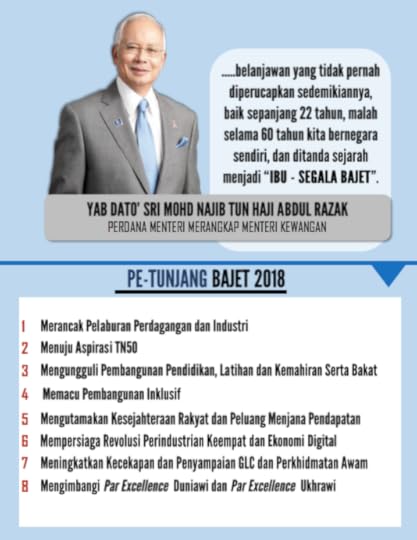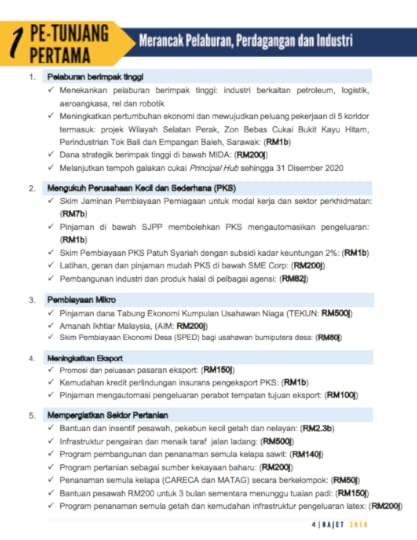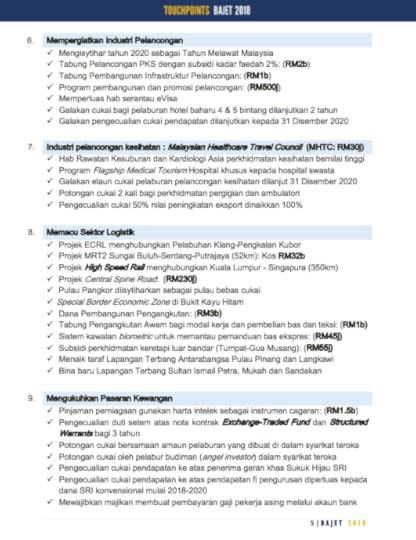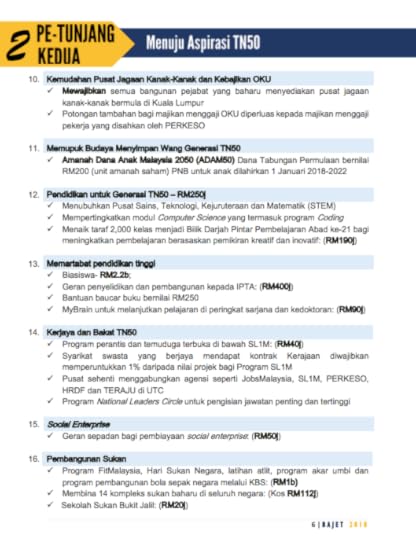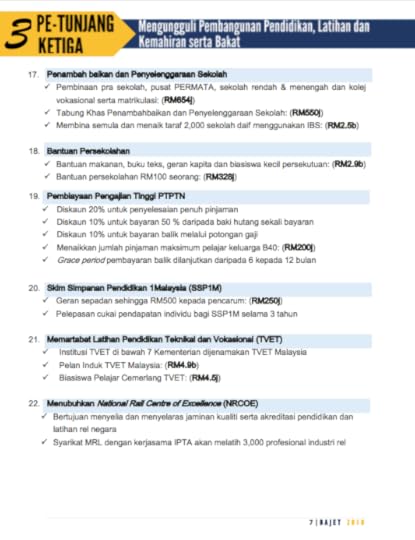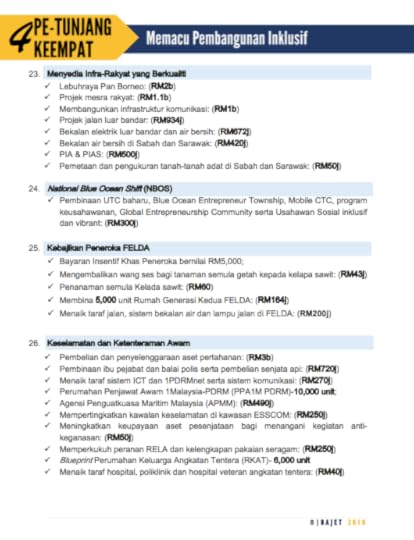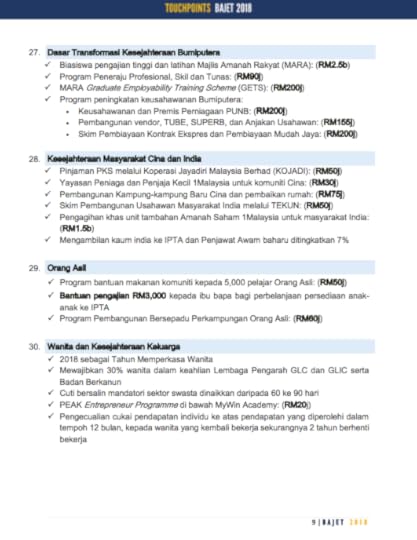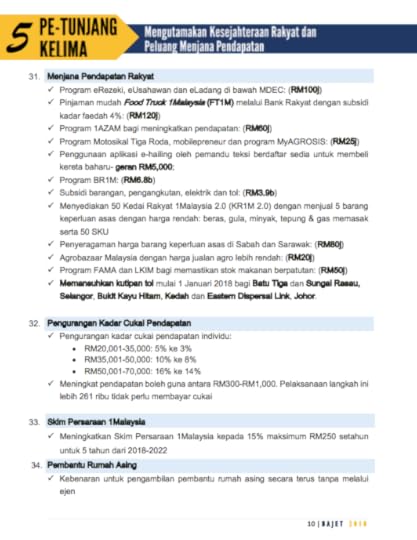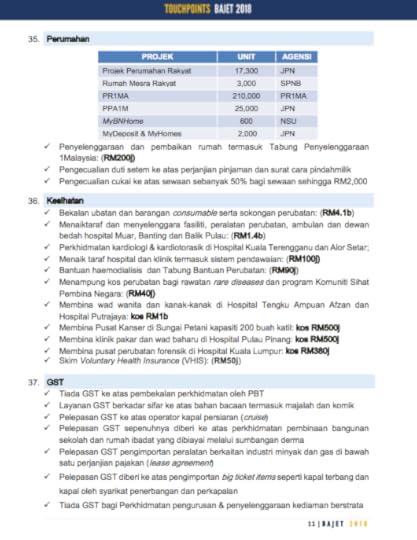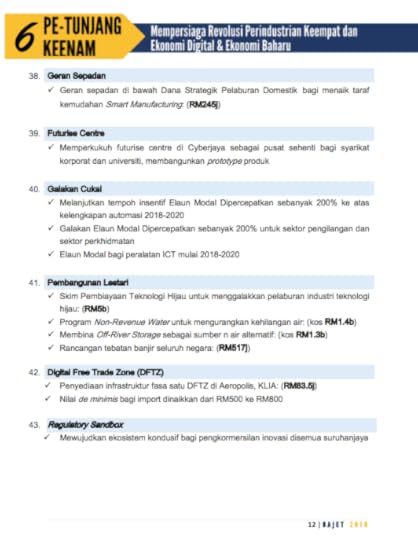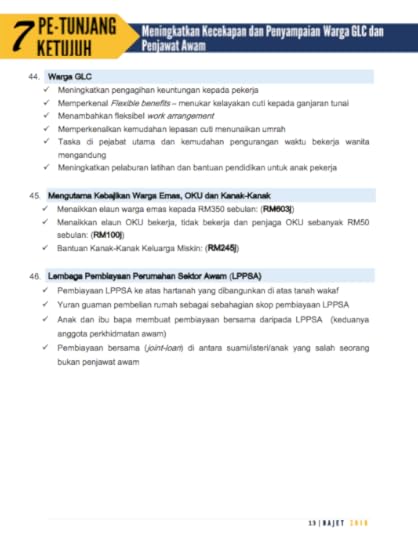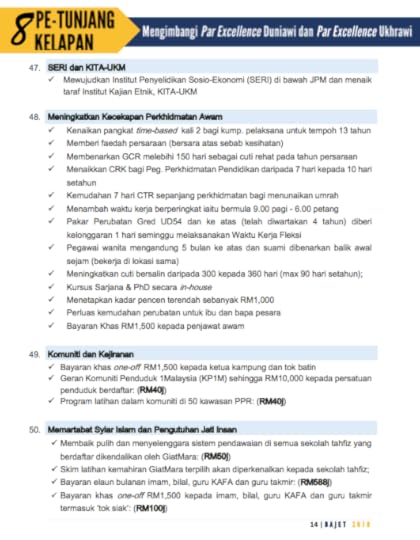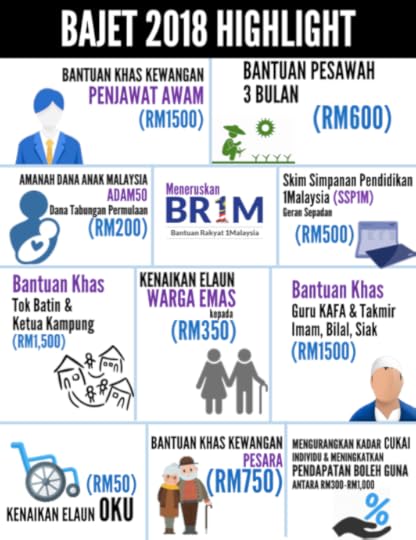Syed Ahmad Fathi's Blog, page 29
January 26, 2018
The First Month of World War 1

This article is a review of Barbara W. Tuchman monumental book ‘The Guns of August’.
This book is an account of the first month of the World War 1 ( WW1) which was in August 1914. Barbara W. Tuchman was not an academician, but she was no stranger when it comes to world politics, her grandfather, Henry Morgenthau was Ambassador to Turkey during WW1. The book started with the funeral of Edward VII of England in 1910 which was a special occasion where many of Europe’s monarch convene peacefully before they went to war with each other.
The book was divided into 3 parts – plans, outbreak, and battle. The German’s plan was called The Schlieffen’n Plan the brainchild of Count Alfred Von Schlieffen. The plan from the start has been made clear, in case of war with France, Germany will violate Belgium’s neutrality. Schlieffen’s concentrate major German’s force toward France, only one-eighth of her force will hold her eastern front against Russia, as he calculated that Russia with its vastness and meager railroad will take 6 weeks to mobilize, by which France will already beaten and the army can be shifted east. Germany also believed that railways were key to war, the best military brain went to rail planning, Germany has mastered the art of logistics, which tuned to be very crucial and effective.
The French plan called Plan 17 centered on the doctrine of an offensive war, which was taught at the War College by General Ferdinand Foch. France has been weary of been defensive all the time. The plan was thought with the spirit of France to win the war, this spirit was called an ‘elan’. The doctrine however soon proven to be hard to sustain under heavy German’s shelling.
The Russian after a shameful defeat in the Russo-Japanese War began to reform its military. Corruption, weak leadership and clinging to obsolete theories, however, have hampered the reforms. Czar Nicholas was said to be uneducated in statecraft, instead, the real government was run by a class of bureaucrat called Tchinovniki, while the secret police dealt with the revolutionaries and guarded the monarch to stay in power.
The outbreak of the war came when Archduke Franz Ferdinand, heir of Austria was assassinated by a Serbian nationalist on June 28. Austria with the backing of Germany declared war on Serbia and bombarded Belgrade. Prompted Russia to mobilize her army to defend her natural ally, Germany declared war on Russia. France having under obligation in a treaty with Russia began her mobilization to attack Germany, while the British, although were hesitant all the way, entered the war after Germany had violated Belgium’s neutrality.
Turkey which was crucial for Germans to ensure that their supply route through the narrow strait, hesitate to pick a side in the conflict. British betrayal, however, seizing 2 ships built in Britain that were already paid by the Turks pushed them to ally with Germany. Churchill was described in the book as “violently anti-Turk”. Eventually, Germans sold 2 of their battleships ‘Goeben’ and ‘Breslau’ to Turkey. German’s Admiral Souchon then used these ships now manned by the Turks to shell Odessa, Sevastopol, and Feodosia which caused Russia, Britain, and France declared war on Turkey.
The book ends with the battle of the Marne where the Germans were pushed back although it does not end the war that would continue for years. Overall the book dealt with the dilemma faced by the commanders and generals, how they made their decision and also the issue of strategy versus necessity.
January 19, 2018
Undi Rosak Suburkan Demokrasi
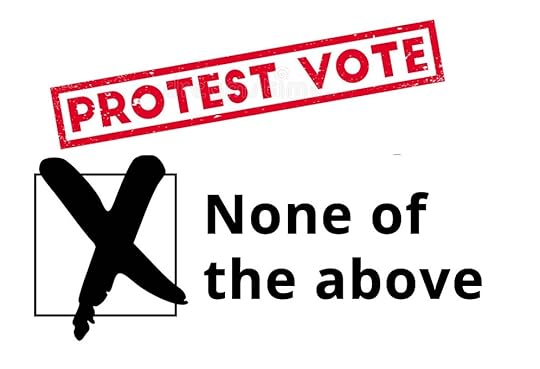
Saya secara peribadi sangat gembira apabila melihat gelombang anak muda dengan kempen protes dan undi rosak. Sedikit demi sedikit kempen ini memberi harapan bahawa suara keramat rakyat masih belum lenyap, dan anak muda mampu berfikir secara bebas walaupun dipaksa berfikir dalam kerangka doktrin ‘dual-party’.Saya bersetuju dengan tulisan Jefri Musa:
“Bagi mereka yang mahu mengajar #undirosak tentang demokrasi itu, saya anggap mereka ini budak-budak. Patut mereka pergi sekolah balik, contohnya di Sekolah Demokrasi.”
Ya, undi rosak bukan lah menentang demokrasi, malah sebaliknya ia adalah perkara yang menyuburkan demokrasi. Demokrasi adalah manefestasi suara rakyat, pilihan rakyat, pemikiran rakyat. Maksud demokrasi bukanlah memilih antara dua parti. Jadi jika rakyat tidak mahu undi, ingin protes, ia adalah hak rakyat dalam sistem demokrasi, hak bersuara dan menyatakan pendapat. Jika rakyat disuruh diam dan ikut sahaja pilihan yang telah ditetapkan oleh pimpinan parti politik itu bukan suara rakyat, itu suara ahli politik. Lebih mengejutkan ada golongan yang mengaku memperjuangkan suara rakyat, tetapi mengugut untuk tidak diteruskan kempen undi rosak. Contohnya pemimpin AMANAH, Hasanuddin Mohd Yunus yang menulis:
“Seksyen 124B Kanun Keseksaan menyatakan, sesiapa yang terlibat dalam aktiviti yang membahayakan/merosakkan demokrasi adalah terlibat dalam jenayah yang boleh dihukum sehingga 20 tahun penjara. Apakah kempen merosakkan undi termasuk dalam definisi 124B Kanun Keseksaan tersebut? Sebarang campur tangan penguatkuasa undang-undang seperti PDRM dalam kebebasan untuk berkempen agar orang tidak keluar mengundi atau merosakkan kertas undi, adalah pilihan terakhir sekiranya terjadi sesuatu yang benar-benar boleh mengancam negara.”
Wow, belum berkuasa lagi sudah mahu menggunakan undang-undang dan polis untuk mendiamkan suara rakyat. Saya menyeru anak muda agar tidak gentar dengan ugutan-ugutan seperti ini. Undang-undang bukan lah sesuatu yang tetap, undang-undang berubah mengikut masa dan keadaan. Undang-undang dibuat untuk menjaga rakyat bukan menyekat kebebasan. Kita belajar dari sejarah apabila undang-undang seperti ISA dan AUKU digunakan untuk menekan suara rakyat, ia ditentang dan akhirnya di mansuhkan. Jangan takut dengan ugutan seperti ini.
Kempen ini juga menunjukkan warna sebenar individu yang seolah-olah menjadi guru kepada rakyat berkenaan demokrasi, namun apabila tiba di persimpangan, tenggelam dalam semangat parti, menjilat ludah sendiri. Tulisan ZF Zamir berkenaan dengan pendirian Hishamuddin Rais bagi saya sangat tepat. Beliau menulis:
“Sebagai anak muda yang membesar dengan terma “pembonsaian pemikiran” oleh Hishamuddin Rais yang merujuk gaya-autokratik-autoritarian-Mahathirisme, pencalonan Dr Mahathir adalah tamparan besar. Hari ini pada 2018, segala kejahatan “Mahafiraun” dan “Mahazalim” itu sudah hilang. Lebih dahsyat tamparan ini datangnya daripada Hisham sendiri, yang sebelumnya menulis makalah pembersihan dan penyucian bertajuk “Mengepung kota dari desa”. Maka dengan kata kunci seperti “Bani Melayu” dan kata kerja seperti “Melayu kunci perubahan”, Dr Mahathir kini disucikan oleh Hisham sendiri. Dr Mahathir pada 2018 persis seorang bayi, suci, putih dan disucikan, ditayamumkan oleh Hisham.”
Pembangkang seolah-olah tidak belajar dari kesilapan ‘Langkah Kajang’. Yang membelakangkan prinsip, menggunakan fitnah untuk menjatuhkan menteri besar. Namun akhirnya gagal, kejang. Kini mahu di ulangi dalam skala nasional, yang diperjudikan bukan menteri besar, tapi perdana menteri. Politik kartun apakah ini? Membawa calon perdana menteri sementara. Seolah-olah ia seperti bola sepak, ada pemain simpanan, boleh tukar-tukar. Mereka gagal memahami kehendak rakyat yang mahukan perubahan, perubahan polisi, mereka tidak kisah dengan sandiwara Anwar maafkan Mahathir, bekas tahanan ISA maafkan Mahathir, adakah yang dibawa adalah politik individu? Atau agenda rakyat?
Hatta Ambiga Sreenevasan turut merayu agar pilihanraya tidak di boikot. Beliau menulis:
“Every single vote matters. At least do it for the rakyat who are voting, so that their efforts are not in vain. This is not the election to boycott or spoil your vote because the nation cannot afford for the present state of affairs to continue. By not picking a side or by not voting, you may believe you are punishing both parties. The reality is, you are punishing only one. You know which one. Voting in a new government will mean the start of a healthy democracy. It means democracy wins and by extension, the people win.”
Yang peliknya Ambiga juga lah yang mengheret rakyat ke jalan raya sebelum ini dengan kempen BERSIH yang mengatakan pilihanraya ini kotor. Tapi sekarang berlumba-lumba hendak suruh rakyat mengundi. Sekarang dah yakin dengan pilihanraya? Sebenarnya apa yang beliau katakan adalah suatu ilusi. Kerajaan baru tanpa perubahan polisi tidak menandakan kesihatan demokrasi. Ambil Amerika sebagai contoh. Amerika merupakan antara negara yang punya system dual party antara Republican dan Democrat. Namun apabila kerajaan bertukar tangan ternyata tidak banyak perubahan yang berlaku. Apabila Obama dari Democrat mengambil pemerintahan dari Bush (Republikan) ramai yang menjangkakan perubahan baik terutama nya dalam foreign policy. Namun Obama gagal mengotakan janji dalam banyak perkara.
Obama berjanji menamatkan perang di Afghanistan, tetapi kemudian menambah jumlah tentera. Amerika mempunyai lobi kuat dari industri ketenteraan yang memerlukan ketidakstabilan dan peperangan bagi menjual produk senjata mereka. Krisis North Korea juga adalah baik pada mereka, kerana Amerika boleh menjual senjata kepada Jepun dan Korea Selatan. Polisi terhadap kerajaan Apartheid Israel juga tidak berubah, kerana kedua-dua parti berada di dalam poket AIPAC. Isu dalaman seperti mass shooting juga tidak selesai. Isu kesihatan mungkin bertambah baik sedikit dengan lebih ramai rakyat di beri coverage kesihatan dibawah ObamaCare namun kesihatan masih belum di jamin sebagai human right. Hari ini kerajaan berada dibawah parti republikan dan diketuai Trump juga tidak membawa perubahan signifikan. Buku tulisan Prof. Howard Zinn “The People History of United States” menganalisis perkara ini dari Columbus hingga ke era Bush.
Sebab itu kita perlu keluar dari doktrin ‘dual-party’ ini. Seolah-olah jika kerajaan bertukar semuanya akan berubah menjadi baik. Ia adalah illusi. Apa yang penting adalah substance dan polisi, bukan muka atau warna parti. Saya juga ingin merakamkan ucapan tahniah saya kepada Komrad Arutchelvan dari PSM yang meberikan pandangan peribadi yang saya kira adil. Dimana undi rosak merupakan sebahagian dari kebebasan demokrasi. Beliau menulis:
“Namun ide-ide untuk boycott, hartal, undi rosak dan sebagainya juga adalah strategi golongan kiri terutamnya golongan Maoist dan Anarkis dan kita tidak boleh meremehkan atau memperlekehkannya. Saya berpendirian bahawa seorang yang sangat muak dengan politik BN dan PH, memang mempunyai hak untuk tidak mengundi atau hak untuk undi rosak, dan saya tidak sekali-kali akan cuba menukar fikiran mereka kerana saya berpendirian itu adalah hak individu dan kebebasan demokrasi. Antara memulau dan undi rosak, saya setuju dengan hujah Aduka bahawa Undi rosak ada statistik.”
Jangan hanya menelan apa yang di suap oleh ahli politik. Kita adalah rakyat, ayuh berfikir!
January 13, 2018
Keimanan pada ‘dual party system’ di Malaysia
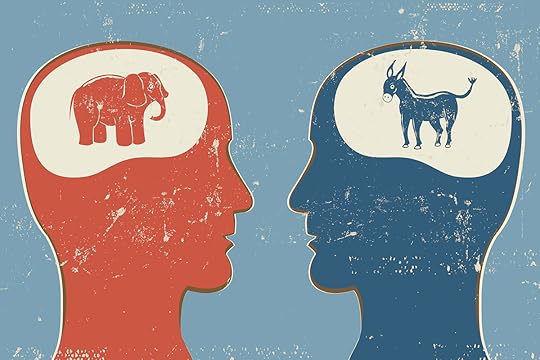
Kepercayaan kepada perlunya Malaysia kepada dual party system seolah-olah telah menjadi akidah dalam kebanyakan penyokong politik di Malaysia. Bagi mereka undi hanya ada dua makna, kepada parti pemerintah atau pakatan pembangkang. Sekiranya undi diberikan kepada parti selain dari pakatan pembangkang ia dilihat sebagai undi kepada parti pemerintah. Doktrin ini bertentangan dengan demokrasi yang meraikan kepelbagaian suara dan perbezaan pandangan. Mari kita lihat dual party system ini dengan lebih dekat.
Amerika merupakan antara negara yang punya system dual party antara Republican VS Democrat. Namun apabila kerajaan bertukar tangan ternyata tidak banyak perubahan yang berlaku. Apabila Obama dari Democrat mengambil pemerintahan dari Bush (Republikan) ramai yang menjangkakan perubahan baik terutama nya dalam foreign policy. Namun Obama gagal mengotakan janji dalam banyak perkara.
Obama berjanji menamatkan perang di Afghanistan, tetapi kemudian menambah jumlah tentera. Amerika mempunyai lobi kuat dari industri ketenteraan yang memerlukan ketidakstabilan dan peperangan bagi menjual produk senjata mereka. Krisis North Korea juga adalah baik pada mereka, kerana Amerika boleh menjual senjata kepada Jepun dan Korea Selatan. Polisi terhadap kerajaan Apartheid Israel juga tidak berubah, kerana kedua-dua parti berada di dalam poket AIPAC. Isu dalaman seperti mass shooting juga tidak selesai. Isu kesihatan mungkin bertambah baik sedikit dengan lebih ramai rakyat di beri coverage kesihatan dibawah ObamaCare namun kesihatan masih belum di jamin sebagai human right. Hari ini kerajaan berada dibawah parti republikan dan diketuai Trump juga tidak membawa perubahan signifikan. Buku tulisan Prof. Howard Zinn “The People History of United States” menganalisis perkara ini dari Columbus hingga ke era Bush.
Perkembangan politik UK saya kira lebih mirip dengan situasi politik negara kita dimana UK mempunyai lebih banyak parti yang memainkan peranan significant dalam arena politik. Namun kita masih boleh melihat dua parti utama yang mirip dual party system, Labour VS Conservative. Untuk memahami bagaimana dual party ini tidak banyak mengubah polisi, boleh baca buku tulisan Owen Jones “The Establishment: And how they get away with it”.
Perhatian penting perlu dilihat disini. Dalam snap election tahun 2017 parti konservatif hilang majoriti dan parti buruh (labour) dibawah Jeremy Corbyn meraih banyak kerusi. Parti konservatif hanya berjaya membentuk minority government dengan melakukan pakatan dengan parti kecil kiri dari Northern Ireland, DUP. Point ini penting, walaupun DUP sangat kecil ia sangat penting bagi membentuk kerajaan. Dalam polisi sekalipun, dalam contoh rundingan Theresa May dengan Brussel dalam isu Brexit, restu DUP diperlukan.
Disini kita melihat bertapa significantnya suara ketiga dalam arena politik. Sebab itu jangan ingat hanya ada dua pilihan dalam politik. Undi terhadap parti kecil lain bukan bermakna kita mengekalkan kuasa pemerintahan. Sekiranya kerajaan kekal sekalipun, kuasanya boleh dilimitkan jika hilang 2/3 kerusi.
Saya pada mulanya merasakan pengeluaran PAS dari PR merupakan satu kerugian pada rakyat. Namun pada hari ini apabila rakyat dipaksa memilih antara UMNO atau ‘bekas UMNO’ ketidakbersamaan PAS adalah rahmat dan memberi pilihan yang lebih segar kepada rakyat, ia juga sesuai dengan semangat demokrasi yang meraikan kepelbagaian suara. Juga parti kecil lain seperti PSM yang tidak mahu terpalit dengan langkah populis membelakangkan prinsip, mereka memberi pilihan baru pada rakyat.
Sungguh aneh hujah untuk menghalalkan langkah mereka. Dikeluarkan dalil ‘mudharat lebih kecil’ , ‘seni politik yang dinamik’ , ‘ijtihad politik dalam siyasah’ , ‘politik kemaafan’ – semua dikeluarkan untuk memaksa rakyat menelan keputusan yang jengkel. Dalil seperti perlu pemimpin ‘qowiyul amin’ disorokkan. Apa sebenarnya definisi pilihan dan perubahan?
Dijaja bekas tahanan ISA telah memaafkan bekas diktator. Apakah politik ini untuk individu? Adakah Tuhan telah mengampunkan tangan-tangan yang menumpahkan darah rakyat di Memali? Tidak relevan siapa maafkan siapa, bukan itu hasrat rakyat. Rakyat tidak kisah dengan drama dan wayang politik. Mereka mahukan perubahan.
Kebodohan Politik Kitar Semula
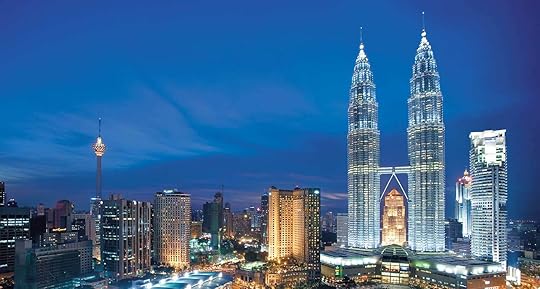
Ajaib apabila kita guna istilah politik kitar semula kita dikatakan tiada akhlak Islam. Sementara pemimpin-pemimpin mereka sendiri menggunakan istilah yang sama. Orang yang sama juga mencaci orang lain dengan gelaran ‘macai’ dan ‘pemakan dedak’. Adakah kita boleh mencaci orang lain jika dia bukan pemimpin kesayangan kita. Belum pernah saya dengar definisi Islam sebegini sepanjang 28 tahun saya menjadi orang Islam.
Saya pernah menulis berkenaan dengan bagaimana pembangkang gagal menangkap imaginasi rakyat, dan hari ini saya semakin yakin. Kita menyokong agenda-agenda membantu rakyat, baik dari PH atau BN, perlu adil dalam sokongan. Kita membaca bagaimana di US Bernie Sanders membawa pemikiran kesihatan sebagai “human right”. Parti buruh di negara lain bawa perjuangan pendidikan percuma. Di negara ini perjuangannya siaran EPL percuma? Saya teringin bertanya kepada pengemis di Jeti Pulau Pinang sama ada dia menyokong Machester United atau Liverpool. Dan saya tak terperanjat jika dia meludah muka saya lepas saya bertanya.
Ternyata parti pembangkang hari ini sudah menjadi golongan elitis, out of touch dari general public. Kemudian di tanya kenapa nak bandingkan Malaysia dengan Zimbabwe? Nak bandingkan dengan German? German tak ada pula yang nak menaikkan semula Hitler, mereka faham zaman berubah, pemimpin pun perlu berubah mengikut zaman nya. Di Perancis & Canada presidennya muda, tapi di sini pemimpin-pemimpin ‘rakyat’ mahu menaikkan pemimpin lalu yang sudah berlalu zaman nya. Mungkin rakyat bagi mereka hanya seorang, yang kini di dalam penjara. Seorang rakyat sahaja perlu diperjuangkan.
Apabila dipersoal akan keputusan. Wah “Ini keputusan syura” telah ditelusuri seerah. “Ini keputusan Majlis Presiden”. Aneh, sekiranya mahu terjun kedalam medan politik suara yang dibawa perlu lah suara rakyat kebanyakan yang bakal mengundi, bukan suara ahli jemaah tertentu. Jika perjuangan nya perjuangan rakyat mengapa tidak diambil suara rakyat, mengapa suara Majlis Presiden dalam mesyuarat tertutup sahaja diambil kira. Apakah rakyat bodoh, tidak boleh berfikir dan hanya perlu menerima keputusan yang dipaksakan pada mereka?
Saya salute pimpinan yang berani menyatakan ketidaksetujuan mereka dengan keputusan calon PM walaupun ada abang berbaju oren menjerit-jerit “Jangan jadi pengkhianat!”. Biar jadi pengkhianat golongan elitis, jangan jadi pengkhianat rakyat.
Semasa keluar parti Islam dulu zikirnya adalah tajdid siasah, kepelbagaian cara fikir, progresif tidak jumud. Bila berbeza dengan keputusan salah mereka tiba-tiba jadi pengkhianat. Sedarlah diri sebelum rakyat menyedarkan kalian di peti undi. Jangan celupar mengatakan rakyat bodoh kerana mengundi kleptokrat kalau diri sendiri sama busuk.
Saya berpendapat jika rakyat beramai-ramai tidak turun mengundi itu bukan bermakna rakyat tidak bertanggungjawab. No vote juga adalah political statement. Semasa As-Sisi di Mesir buat pilihanraya, dan ramai rakyat tidak turun, bukan bermakna rakyat Mesir bodoh, tetapi dia tahu dengan tidak mengundi dia tidak memberi legitimasi. Sama juga di Malaysia, tiada siapa berhak kata golongan yang tidak mengundi sebagai tidak bertanggungjawab. Apakah tanggungjawab rakyat mengundi antara dua pilihan yang kedua-duanya sampah?
Jika dibarat ada ungkapan “No taxation without representation” begitulah juga dengan pilihan raya. Kita tak perlu beri undi jika tiada mana-mana parti yang mewakili suara kita.
January 7, 2018
Kisah terkuburnya perjuangan Reformasi 1998 di Malaysia
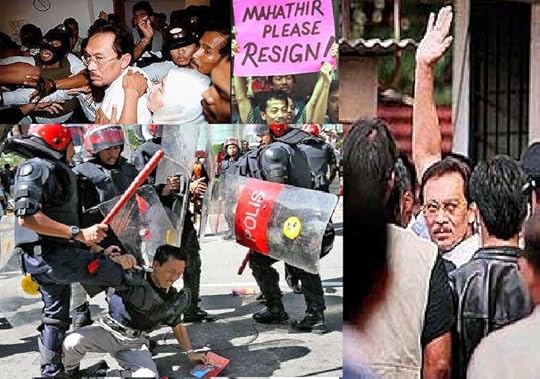
Pada 7 Januari 2018 secara rasminya terkuburlah perjuangan reformasi yang dimulakan pada tahun 1998 dengan pengumuman oleh Pakatan Harapan (PH) bahawa Tun Dr. Mahathir Mohamad merupakan calon perdana menteri. Rakyat tertanya-tanya apa nilai darah mereka yang jatuh dahulu, badan mereka yang dipukul, tidak sedikit merasakan mereka di khianati. Sementara ahli politik mengejar matlamat jangka pendek mereka dengan mengadai prinsip, mereka terlupa rakyat Malaysia mempunyai ‘collective memory’ yang panjang.
Saya merasa sedikit janggal dengan hujah-hujah dari penyokong mereka, terutamanya dari parti baru yang dianggap Islam progresif. Apabila dibawa isu komponen dari parti mereka yang memboikot konvensyen PH seperti dilapor oleh Star Online dan Malaysiakini dikatakan ia adalah dinamika politik. Dengan mengatakan bahawa peranan du’at (pendakwah) untuk bersama menjayakan perubahan. Perubahan ke mana yang hendak dibawa? Apabila disebut rakyat, adakah rakyat yang dimaksudkan hanya rakyat yang menyokong PH?
Alasan yang diberikan adalah ijtihad politik. Yang pertama, ijtihad politik bukan merupakan satu dalil qat’ei setara dengan Al-Quran dan hadis. Ijtihad gerakan Ikhwan dalam politik Mesir juga tidak semestinya bersih dari kesilapan. Yang kedua, bila disebut politik Malaysia, targetnya adalah rakyat Malaysia keseluruhannya. Jadi ia perlu kepada satu bahasa politik yang dapat difahami oleh rakyat kebanyakan, bukan hanya yang difahami oleh ahli jemaah Islam tertentu.
Ironis, sementara Zimbabwe menurunkan presiden mereka yang berumur 93 tahun. Sebuah gabungan pembangkang disebuah negara berusaha keras menaikkan semula pemimpin lama berumur 92 tahun.
November 30, 2017
I have lived with several Zen masters – all of them cats

Not all reviewer gave a favorable review to this book. Some might said that its pseudoscience or spooky, but few people can argue that the book doesn’t have strong influence and had touched millions of readers. The simple reason for this is ‘it makes sense’. In the book, Eckhart Tolle explains the distinction between oneself (consciousness) and the mind. The separate existence of these two elements is the reason why we always heard a dialogue in our head, this according to Tolle was the mind in action.
But the mind is constantly thinking, its often repetitive in nature, unnecessary, dysfunctional and destructive. It was due to this, he argues that if we fail to make a distinction between our consciousness and our mind, our energy could easily be drained out by this useless exercise. By drawing the distinction, a human can use their mind as a tool, use it when necessary, and lay it down once it does not need them, which will put them at a state of stillness and peace.
The mind always perceived something from past perspective and projected what we currently doing to achieve something in future. This attachment of the mind with past and future make us less aware of what we currently do, what Tolle called ‘the Now’. Past is just a memory of the mind, while future is the imagination of the mind, while we were clouded in this time-bound, we lost the sense of the present – the Now – which is the reality. We fail to appreciate the beauty around us, we can’t feel the joy of present, we are constantly at pain. Our focus should always be the present moment, the Now – which is the reality in which we actually live in, not the past or future.
Tolle pointed out that we often become conscious in life-threatening situation. This is when we focused on the current state of affair or as Tolle puts it ‘in the Now’. In this kind of situation, we no longer focused on our daily problems, we no longer use our mind to exercise on past memories. This is why most people will venture into dangerous activities such as skydiving or bungee jumping, the thrill gave them focus which in turns make them feels alive. If they slip from their focused, they will likely to be dead. Realizing that we need this focus will help us in living a more lively life, we don’t need to exercise these dangerous activities, we need to understand how we operate and used it to find our focus.
At the moment of stillness, a moment many Zen masters called satori is a moment where we’re not thinking, this is a state of no-mind. In this state, we become aware of the beauty surrounding ourself. We become conscious of the sound of the wind, we appreciate the heat that comes with sunlight, we become happier and livelier. To really live is to find the stillness.
In the book, he also discussed greatly on pain and suffering. On how we tried to cover our pain with addiction to drugs, cigarettes, drinking – only for the pain to resurface again, more intensely. When there is no way out, as he puts it ‘there’s always a way through’. By accepting what is, what has happened and fully conscious by not creating any pain. Tolle explains that pain and suffering are normal in life, everything goes up and down in their natural cycle. Trees die to make room for new seeds to grow. So do we, we need to accept our failure, to be at our lowest point so that we cant get any lower and the only way is up. By accepting and not resisting, we allow ourself to learn and re-grow.
I personally like the analogy he gave, that we are a deep lake. Our true self (being as he called it) is the water in the deep, our life situation is the surface of the lake. When we realize this, they may be a wind and a wave in the surface, but the water underneath remains still, calm and at peace. The analogy reminds me of ‘Tuesday with Morrie’ where Morrie said that we are not individual wave, but part of the ocean. When we realize this, no matter what comes, whatever life situation we are in, we will forever be at peace.
The book will definitely give you a new sense of modern spirituality.
This article is a review of “The power of Now: A guide to Spiritual Enlightenment” by Eckhart Tolle. Published by Hodder, 2011.
November 3, 2017
The Story of British Modern Political Elite
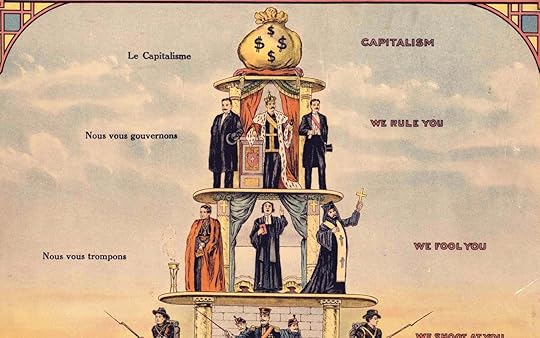
British elite
Owen Jones started in the introduction on how the elite condemns ‘socialism’ but capitalism when closely observe is in fact socialism. The difference is, it is a kind of ‘socialism for the rich’. Where the state funding is used to subsidized and help business, which in the end gave benefit to the super-rich. When the state funding being used to help people at the bottom, ‘socialism’ is used, with a negative connotation. The attack is targeted to immigrant, public claimant and public servants.
Jones analysis on what is the Establishment, includes not only people with the power but also people around it, without which the system cannot be sustained. The establishment is not about a few corrupt people, but it’s a system, he argues that although the party who form government changed, the policy hardy deviates from what has been accepted of The Establishment’s idea and policies. Changing the people in it argues Jones, will not solve the problem.
He started his analysis on the post-war Britain, where the country ideas were largely dominated by the left, and trade union is a mighty force to reckon with. Back then even the conservatives fighting the election using policies which years before ‘associated with the left’. The game changed with what Jones called ‘The Outriders’. They were peoples with free-market ideology, pro-business and pro-privatization. They formed multiple think tank, which seems as a neutral organization, publishing report and studies to proliferate their idea. They are responsible to shift public opinion to accept the free market ideology and provide fundamentals for future free-market practical policies.
One of the Outriders, the think tank, was Adam Smith Institute, which was founded by Madsen Pirie. Their mission is to throw out the old establishment and found a new one based on free-market ideas. They transform abstract ideas into practical policies, convinced politicians to adopt them, and help them get re-elected. But something was needed to trigger the shift, as Milton Friedman spilled it out ‘Only crisis-actual or perceived produced real change.’ And as it turns out, in the min 1970, the ‘oil-price shock’ came in, and inflation surged. The crisis gave them an opportunity to paint that the political left has failed, the outriders work hand in hand with the Tories to installed Thatcherism – privatization, deregulation and slashing tax for corporations and the rich. They pushed the boundaries of what is seen as politically feasible and popularized the idea of free-market. The groups of these kinds market themselves as people’s voice, neutral and non-bias, while in reality, they are the right-wing organization pushing for their economic and political ideology. Jones also wrote on how the think tank shifted the ‘Overton Window’ – which is what is seen as politically reasonable and practical. The free market idea dominates universities and scholar who did not subscribe to the idea becomes isolated.
Then Jones comes to touch on the issue of the politicians in Westminster. He criticized how Blair after assuming power on labor’s ticket, did not reverse Thatcherism but embraced it as the new normal. When Gordon Brown contested his post, promising a comeback on Labour’s ideal – he managed to assume the premiership but also did not deviate from the free market policies. In fact, as argued by Jones, Brown continue with the privatization and slashing corporate tax. So, it’s not the question of who is the government, but who is the government serving to? The answer is corporate business and multi-national companies. There are a few factors for this, including a strong corporate lobby, revolving doors between political world and business world, which in the end shift the politician’s fight to defend corporate interest.
Then, there are the media. The propaganda machine used by its wealthy owners to defend their wealth and pushed for economic policies which are favorable to their business at the same time destroying communities and environment. Apart from ownership, the media also have become a party for the rich. For example, people aspired to be journalist need to start as an unpaid intern which only possible if you had a financial backing from your parent, also as the competition grow, postgraduate degree has become a ticket for entry.
Then, there is the police. The institution that supposed to protect civilians, but instead used to crushed dissent. Jones brought historical account such as Orgreave and Hillsborough. Where the police used cover-up, fabricated evidence, and propaganda. Jones wrote on how Thatcher bought the police’s loyalty. He also exposed how the police used a method known as kettling – which concentrate protester into a small compound to reap violence, which will give the police the reason to charge. He also wrote on how racism has rooted deep in the police’s institution.
The core idea of modern capitalism is that Big Government is hampering the business, webs of regulation and state intervention caused the market to become less effective, the market needs to be left for itself and self-regulate. On contrary, Jones argued that this idea is a con. The business is highly dependent on the state. It needs the police to protect their property, regulation to protect their intellectual property, and more importantly, the vast amount of taxpayer money to produce university-graduate-workforce. Without all these, the business can barely survive. The financial crisis in 2007-2008 was a practical proof on how disastrous it is when the market is left to self-regulate. In the end, the state comes in and bail out the bank, costing an astronomical amount of taxpayer money, while the banker’s dividends and bonuses remain intact. The loss was paid by the people while the profit was privatized – socialism for the rich. At the end part of the book, Jones argued on how the US and EU are undermining the British democracy. On how Blair commit Britain to war in Iraq without UN resolution and the public supports to appease the American.
The book concluded with a call for a democratic revolution and called to reject the idea of “there are no alternatives”. Jones also explained that rejecting free market does not mean statism, contrary to binary thinking, there are a lot of policies that can be improved which gave people much more decent life without hampering the economy. Granting workers more secure positions will bring about quality work and quality life at the same time. He also argues that Britain need to be in the forefront to divest from polluting economy and become a market leader in the green economy. Finally, the book ends with a beautiful saying from the late Frederick Douglass.
This article is a review of ‘The Establishment and how they get away with it’ by Owen Jones.
October 28, 2017
Krisis hutang negara : RM 674 billion
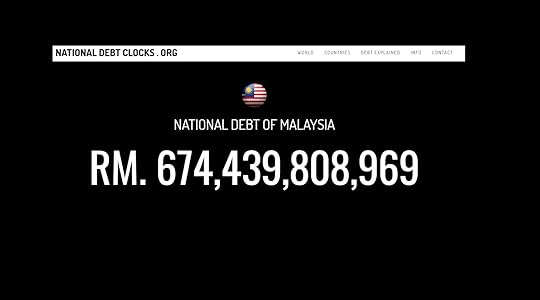
Kita sering ditakutkan dengan jumlah hutang negara , web National Debt Clock meletakkan hutang Malaysia sekitar 674 billion. Sekitar 66.5% dari keseluruhan GDP Malaysia. Jika hutang ini dibahagikan antara semua rakyat Malaysia yang berjumlah 32 juta, setiap individu memikul beban hutang sebanyak 21 ribu ringgit. Namun data ini tidak conclusive, data dari Bruce Gale sebagai contoh, seorang ahli ekonomi, meletakkan hutang negara Malaysia berbanding GDP pada 53.2%.
Pada sudut pandang rakyat biasa 674 billion merupakan angka yang sangat besar, kerana kita tidak biasa dengan angka sebesar ini dalam kehidupan harian kita. Jumlah yang paling besar yang kita pernah uruskan mungkin sekitar 300 ribu hingga 500 ribu bagi pinjaman perumahan. Jika ahli perniagaan memerlukan pinjaman untuk memperbesarkan perniagaan mereka, begitu juga negara memerlukan pinjaman bagi membiyai program-program pembangunan negara.
Bagaimana Malaysia berhutang?
Seperti mana negara lain, kerajaan menerbitkan bon atau islamic bon (sukuk) yang kemudiannya dipecahkan kepada unit-unit kecil dan dijual untuk langganan. Fund-fund besar di Malaysia seperti PNB, KWSP, KWAP, LTAT dan TH merupakan antara pelanggan biasa bon kerajaan. Dalam erti kata lain, hutang kerajaan kebanyakan nya merupakan hutang domestik dalam mata wang ringgit. Juga harus di ingati, apabila Kerajaan Malaysia membayar semula langganan bon ini beserta faedah, keuntungannya akan kembali kepada rakyat dalam bentuk dividen. Sebagai contoh, mengikut laporan kewangan KWSP bagi tahun 2016, pegangan KWSP dalam Sekuriti Kerajaan Malaysia dan Bon adalah sebanyak 181.3 billion. Ini bermaksud dari 674 billion hutang kerajaan 27% adalah dari KWSP.
Bagaimana perbandingan hutang Malaysia dengan negara lain?
Hutang negara kebiasaanya di nilai dengan perbandingan dengan GDP (Gross Domestic Product). Apa itu GDP? GDP adalah market value sesebuah negara, dalam erti kata lain, berapa nilai sesebuah negara. Ia dikira dengan mengambil kira keseluruhan produk dan servis yang dihasilkan sesebuah negara, nett export, public consumption dan government spending. Dalam bahasa yang lebih mudah, ia mengukur kekayaan sesebuah negara. Dalam skala individu mungkin analogi nya seperti pendapatan bulanan (GDP dikira tahunan), seorang yang berpendapatan seribu sebulan mungkin tidak layak untuk meminjam dari bank 500 ribu bagi pinjaman perumahan. Kerana tidak cukup kaya, dan bank tidak yakin akan keupayaan nya untuk bayaran semula pinjaman.
Begitu juga negara. Hutang negara perlu dilihat dari kemampuannya, iaitu dari GDP negara tersebut. Saya pilih beberapa negara yang saya kira signifikan, data yang sama dari National Debt Clock.
United Kingdom berhutang 87% dari GDP negara mereka.
Amerika Syarikat berhutang 106% dari GDP negara mereka.
Singapura berhutang 115% dari GDP negara mereka.
Jepun berhutang 249% dari GDP negara mereka!
Perhatikan negara-negara lain berhutang lebih dari apa yang mereka produce (kecuali UK dalam contoh ini). Jepun sehingga hampir 2.5 kali ganda! Manakala Malaysia tidak berhutang melebihi GDP, Malaysia berhutang hanya separuh dari apa yang kita hasilkan setiap tahun.
Bolehkah Malaysia membayar hutangnya?
Jika kita hendak berhutang dengan bank sebagai contoh, bank akan melihat record CCRIS kita yang dikeluarkan BNM. Jika rating kita rendah, kita tidak akan mendapat pinjaman, kerana bank tidak yakin kita mampu membayarnya.
Kebolehan membayar hutang bagi negara-negara kebiasaannya diukur melalui rating agency. Antara rating agency yang selalu diguna pakai adalah Moody’s, S&P dan Fitch. Moody’s meletakkan Malaysia dalam kategori A3 (bagi September 2017) bersamaan dengan A- bagi penilaian S&P dan Fitch. A3 atau A- merupakan upper medium grade atau investment grade, dalam erti kata lain pelabur boleh meletakkan duit mereka di Malaysia dengan yakin melalui rating ini, kerana ia memberi gambaran kebolehan Malaysia membayar pinjaman dan memberi pulangan pelaburan.
Kesimpulan
Malaysia sememangnya mempunyai hutang sebagaimana negara-negara lain. Ianya perlu bagi membiyai pembangunan negara. Jika kita menilai hutang ini secara objektif seperti peratusan dari GDP, Malaysia masih di paras yang reasonable. Agensi penarafan juga meletakkan Malaysia di dalam kategori yang selesa. Jika benar negara akan bankrap, rating kita sepatutnya jauh lebih rendah, iaitu pada Triple C (Fitch) atau C (S&P).
October 27, 2017
October 18, 2017
3 Types Of Stock Investors
Lucy is a successful baker in Penang. She makes homemade cookies and selling them to online customers. Day after day, her business is getting better. One day, she decided to have her own shop, with extra hands and better equipments to accommodate the high demands from her customer. In order to do so, Lucy needs a vast amount of money.
Lucy has a friend, Diane. She knows nothing about baking and has no background in business, but she has the money. She knows Lucy and the cookies well so she decided to help Lucy financially, in return she owns some shares in Lucy’s bakery.
Lucy’s business is getting better and noticeable. Few years later, her company become a public listed company in Malaysia. One day, her company was awarded a contract of supplying cookies to an airline company. A guy name Brian, who happened to read the good news on newspaper decided to buy some shares in Lucy’s company at certain price and sell it at his targeted price based on his analysis. As for his brother, Dennis – He simply buy the same shares because he feels that it is the right thing to do.
From the situation above, we can see how the stocks/shares functioning and type of people who get involve in the market. The reason why companies going public is to raise fund for the company itself. They will allocate certain amount of shares that can be traded among public. This giving us opportunity to have some ownership/shares of the company.
Type Of Investor :
 Image Credit : Frugal Entrepeneur
Image Credit : Frugal Entrepeneur
1. Gambler
Dennis is the gambler in this situation. He knows little about the company and buy the shares because other people did. This is a big no in stocks investing. He might get lucky if the company he choose make profits but hey, the world ain’t all sunshine and rainbows. Good reported news, contract award are not 100% mean the company will do well.
 Image Credit : The Balance
Image Credit : The Balance
2. Trader/Speculator
Brian is the trader. Usually their decision are driven by the technical and fundamental analysis. Their principle is to always buy low and sell high. They won’t hold their shares for too long in a company. Traders rely much on the technical analysis and charts. So the guy you saw on the movie, sitting in front of their 6 screens computer looking at the price movement is belong to this type.
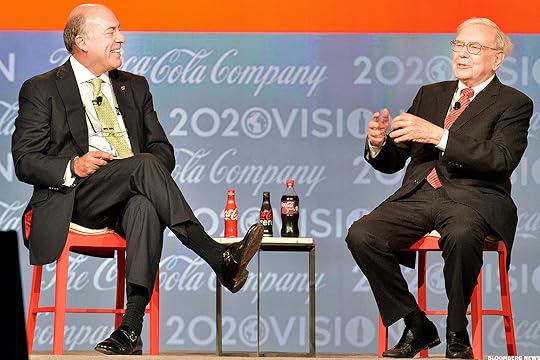 Image Credit : The Street
Image Credit : The Street
3. Investor
This is the best, peace of mind type among all type of investor. Diane is the investor. An investor hold their shares in a company in a long run. An investor will make sure that they knows the background of the company, the business nature and the people who runs the company before investing. As Warren Buffet said in his book, “Never put your money in a company that makes you confuse”. One of the best stock he bought is Coca-Cola simply because he likes to drink it and he can understand the business.
So what kind of investor you are? I do get a lot of question asking which one is better between stocks and Forex. I will try to cover it on the next post.

